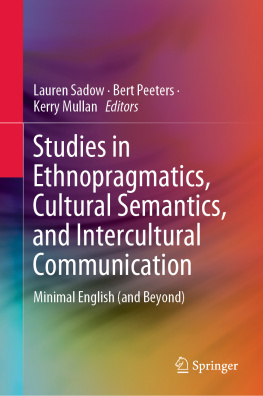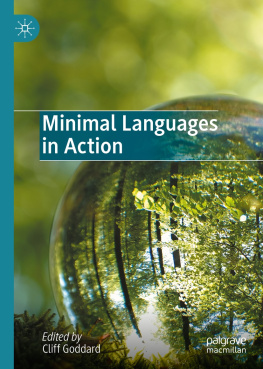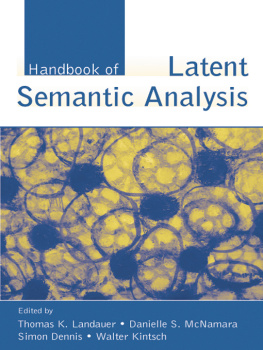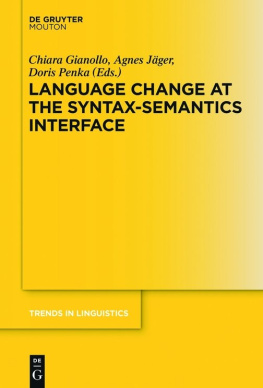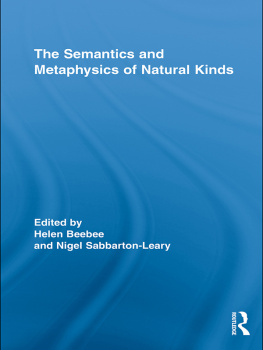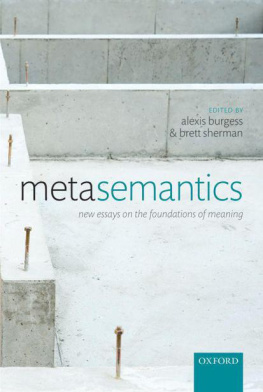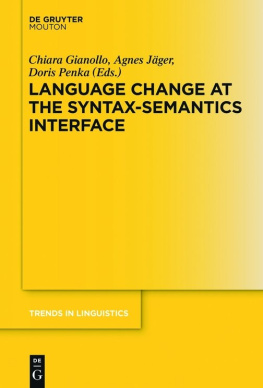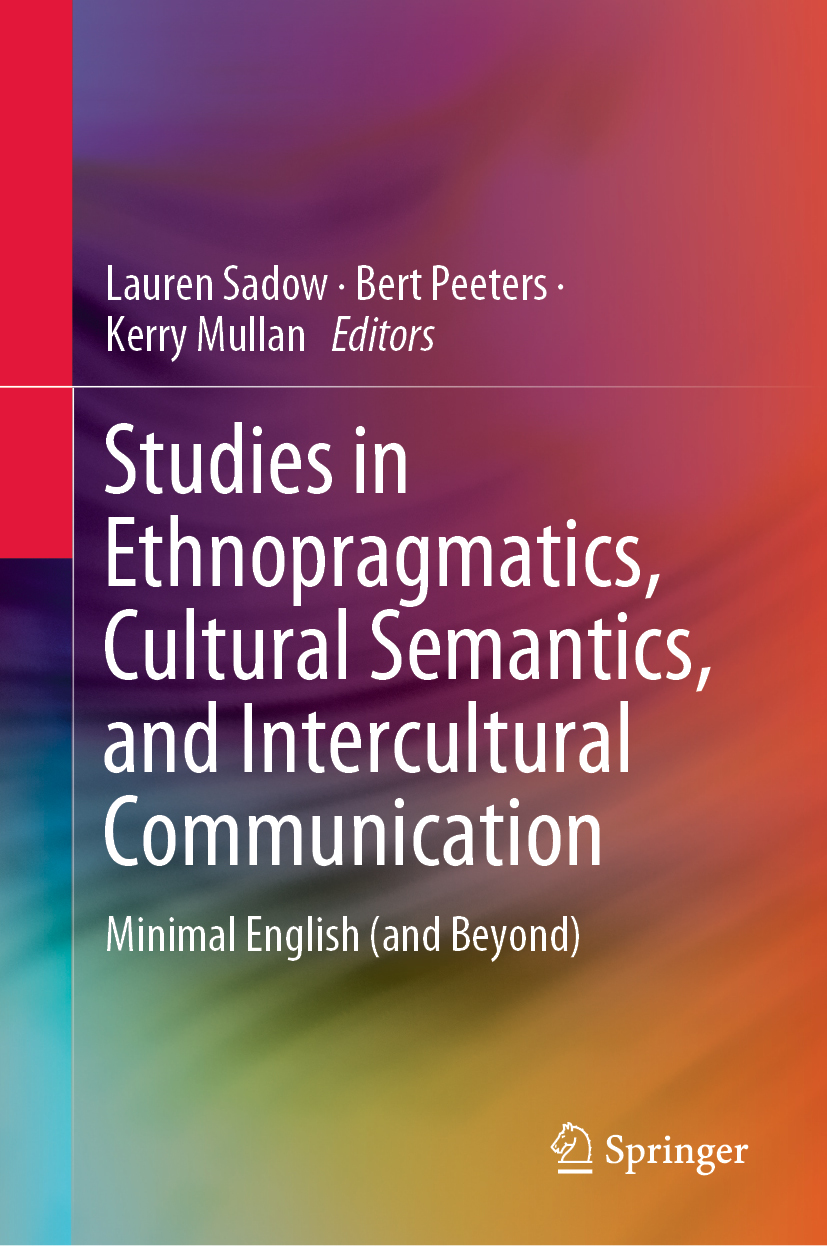is a sessional academic at the Australian National University, Canberra. Her main research interests are teaching culture, interactional norms, cultural lexicography, and cross-cultural communication. Her Ph.D. thesis created an NSM-based dictionary titled The Australian Dictionary of Invisible Culture for Teachers.
1.1 Introduction
The current volume is the third of three celebrating Cliff Goddards career and achievements in linguistics over a period of forty years. It was Goddard who, in .
The key ideas of the NSM approach are outlined in the introduction to the first volume. Suffice it to say here that, as a method of semantic analysis, NSM is unique in that it aims to define concepts through what its advocates believe to be the shared semantic and grammatical core of all languages. The NSM approach achieves its goal through a lexicon of 65 semantic primes and their combinatorial grammar. The primes are semantically simple (i.e. irreducible) concepts that decades of painstaking empirical research involving dozens of typologically and genetically unrelated languages have proven to be traceable (i.e. lexicalized) in all of them. The approachs working hypothesis is that they are true lexical universals that are readily cross-translatable, and therefore, allow descriptions of language- and culture-specific material that rely on them to be translated back and forth without semantic distortion, and without falling prey to circularity and ethnocentricity.
This is indeed one of the primary goals of the NSM approach: to debunk the myth that English, as we know it today, is a culture-neutral language whose words and phrases are devoid of cultural bias and can be used without the slightest proviso as infallible metalinguistic tools. NSM allows us to provide definitions (explications in NSM parlance) that capture the semantics of concepts in any language from a truly emic perspective, i.e. from the perspective of the speakers of that language rather than that of cultural outsiders who put their own cultural spin on concepts that are not their own, thereby disfiguring them, sometimes unrecognizably so.
After the first volume, with its focus on ethnopragmatics and semantic analysis using NSM, and the second, with its equally NSM-driven focus on meaning and culture, the third draws together researchers working with and on a recent offshoot of the Natural Semantic MetalanguageMinimal English. The current chapter will give a broad introduction to Minimal English, building on the introduction to volume 1, and will contextualize the many different ways in which Minimal English (and, more generally, Minimal Language) can be applied and will be used throughout the chapters of this volume.
1.2 Minimal English and NSM Compared
NSM practitioners use semantic primes and universal grammar to create deep semantic analyses of words. Such analyses are referred to as semantic explications. In addition, they use the same primes and the same grammar to articulate cultural norms and values in often highly culture-specific cultural scripts. Minimal English pursues very similar aims, but on a broader scale and through slightly different means.
Over the years, there has been a developing interest in the manner of paraphrase used in semantic explications and cultural scripts, but also a reluctance to engage with it, due to the complexity of using the metalanguage. In spite of being a tool created by linguists for linguists, but also for the world, to quote a phrase used in the introduction to the second volume, NSM is often perceived as just for linguistsand not even any linguists. It is often thought of as too hard to handle for anyone who has not been appropriately trained to use it (by one of its leading advocates) or has not been exposed to it through years of sustained reading of relevant scholarly literature. Minimal English, on the other hand, is primarily designed for broader dissemination and use. It is a new development within the NSM approach, which aims to be more accessible for researchers across a variety of disciplines as well as for non-researchers in the broader community. It aims to get NSM out of the lab (Goddard and Wierzbicka : 6) and into the real world, where it can help solve real-world problems.

